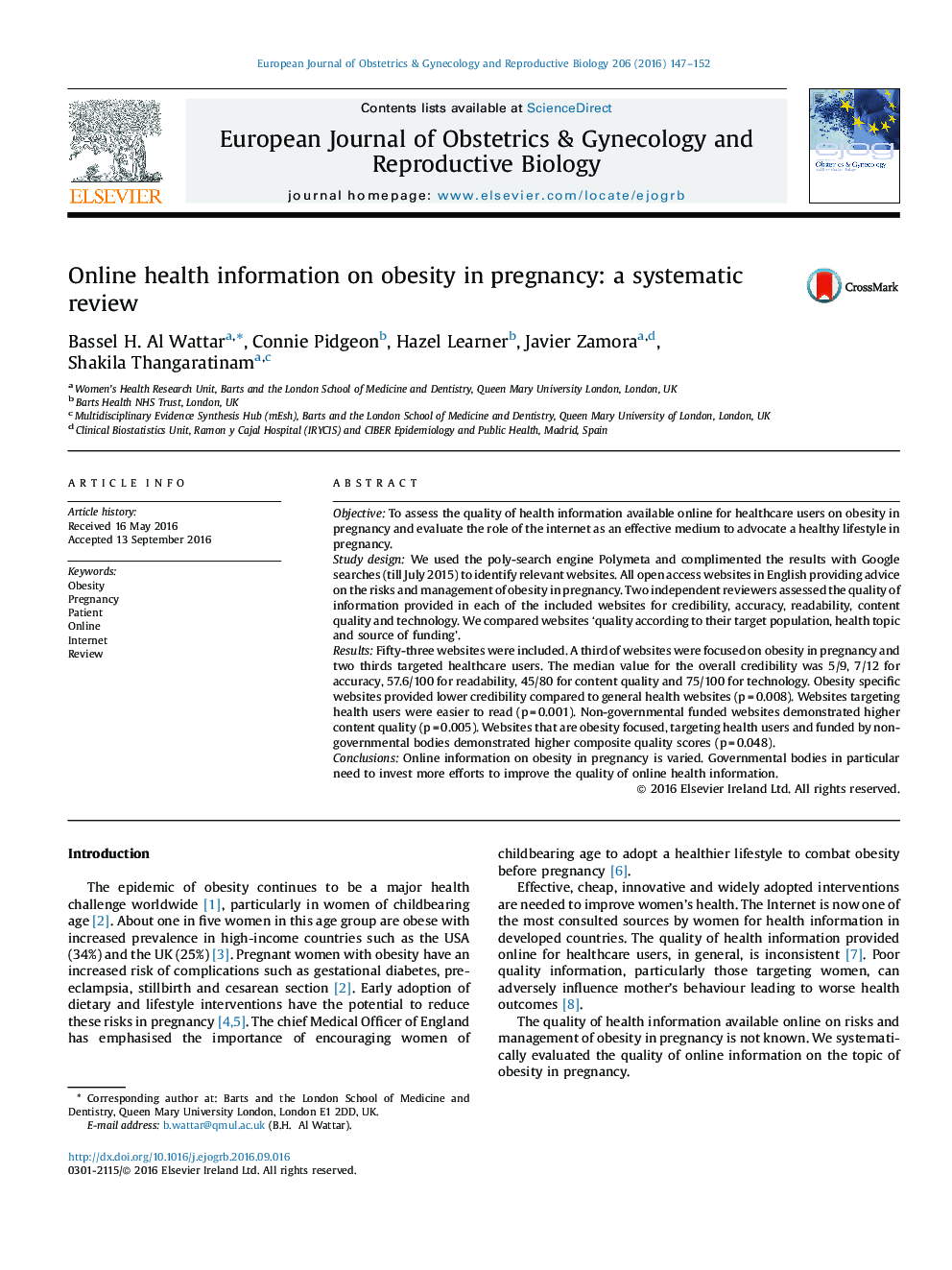| Article ID | Journal | Published Year | Pages | File Type |
|---|---|---|---|---|
| 6172418 | European Journal of Obstetrics & Gynecology and Reproductive Biology | 2016 | 6 Pages |
ObjectiveTo assess the quality of health information available online for healthcare users on obesity in pregnancy and evaluate the role of the internet as an effective medium to advocate a healthy lifestyle in pregnancy.Study designWe used the poly-search engine Polymeta and complimented the results with Google searches (till July 2015) to identify relevant websites. All open access websites in English providing advice on the risks and management of obesity in pregnancy. Two independent reviewers assessed the quality of information provided in each of the included websites for credibility, accuracy, readability, content quality and technology. We compared websites 'quality according to their target population, health topic and source of funding'.ResultsFifty-three websites were included. A third of websites were focused on obesity in pregnancy and two thirds targeted healthcare users. The median value for the overall credibility was 5/9, 7/12 for accuracy, 57.6/100 for readability, 45/80 for content quality and 75/100 for technology. Obesity specific websites provided lower credibility compared to general health websites (p = 0.008). Websites targeting health users were easier to read (p = 0.001). Non-governmental funded websites demonstrated higher content quality (p = 0.005). Websites that are obesity focused, targeting health users and funded by non-governmental bodies demonstrated higher composite quality scores (p = 0.048).ConclusionsOnline information on obesity in pregnancy is varied. Governmental bodies in particular need to invest more efforts to improve the quality of online health information.
